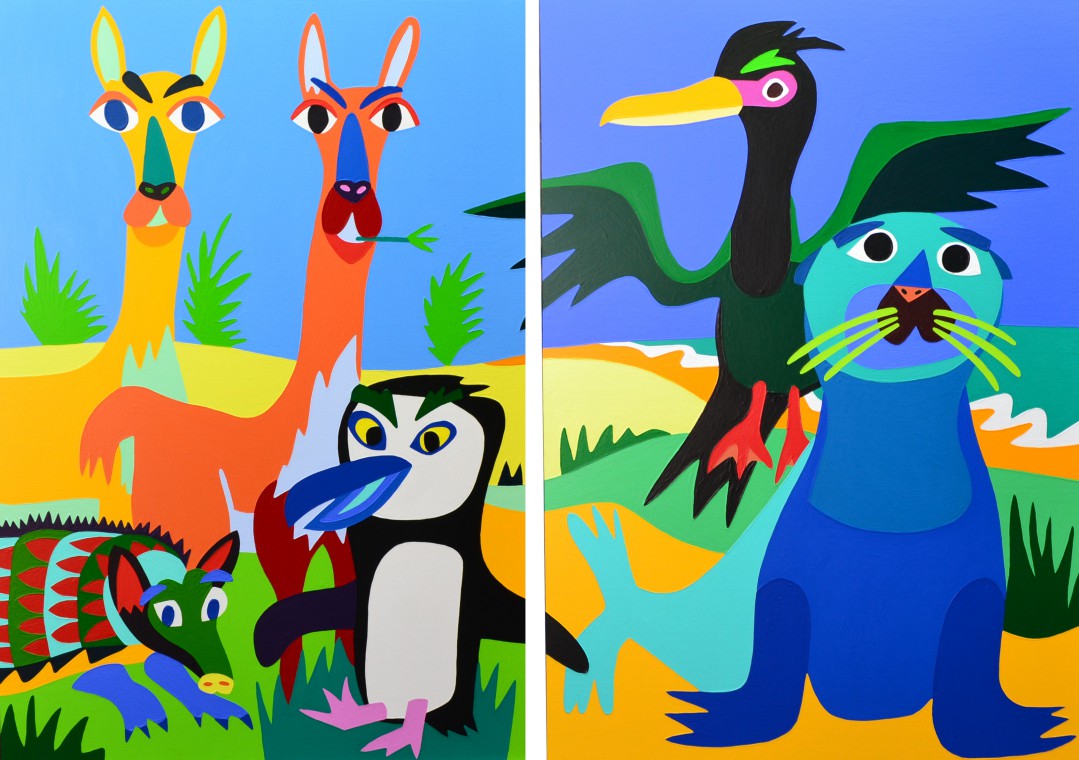The artist’s work captures the essence of a unique ecosystem, where various native species coexist in harmony, forming part of Argentina’s invaluable natural heritage. Península Valdés, located in the province of Chubut, is a globally recognized Natural Protected Area, designated as a UNESCO World Heritage Site in 1999. It is also a RAMSAR site and a Biosphere Reserve.
This natural habitat is home to a rich biodiversity, both terrestrial and marine. Among its most emblematic inhabitants is the southern right whale, a species previously depicted by Gonzalo in another piece from the collection. Each year, these whales return to these waters to rest, give birth, and nurture their calves before embarking on their migration.
In this new artwork, the artist sensitively portrays a sea lion pup, a cormorant, an armadillo, a Magellanic penguin, and two guanacos. But are we the ones observing them, or are they watching us, questioning our relationship with nature? Through the expressive gazes of these figures, the artist invites the viewer into an exchange of perspectives and communication, prompting a reflection on our role in conserving these environments.
Furthermore, the selection of these species highlights the importance of home and family care. Gonzalo, the artist, notes:
“The nest is a refuge where males actively participate in raising the young, building the home, and supporting their partners. Cormorants, for example, search for marine algae in the ocean to construct their nests, while Magellanic penguins arrive early on the coast to select, prepare, and secure a safe space for their families. Nature offers us noble and clear examples: today’s children deserve more attention, affection, and positive paternal role models. Knowing how to inhabit the nest is a shared responsibility, not just that of women. Nature teaches us that caregiving is a daily and essential task.”
This artwork not only invites contemplation but also serves as a valuable educational tool for teachers. Through it, the concepts of family can be reinforced, values of companionship can be encouraged, and knowledge about Argentina’s wildlife can be expanded, fostering a more conscious and respectful perspective toward our natural environment.

